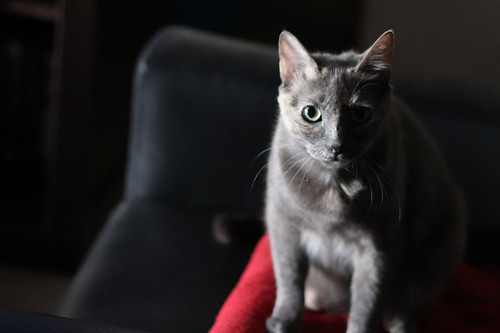Do any animals keep pets like humans do?
Pets #Pets

People love their pets. Around 60% of the U.S. population owns at least one pet and collectively spends more than $100 billion on them every year.
But do any other animals have that kind of drive to care for a member of another species? Do any nonhuman animals keep pets?
You’ve probably seen plenty of examples of animals “adopting” other animals. Koko the gorilla and her “pet” kitten is probably the most famous example, but there’s also an elephant that befriended a dog, a crow that adopted a cat, a goose that paired up with a tortoise, and many more. These examples suggest that animals can and do keep pets — doesn’t it?
“The problem is that, with very, very few exceptions, all of these occur in the context of human intervention,” said Harold Herzog, a professor emeritus at Western Carolina University in North Carolina. “That is to say, they occur in wildlife parks, or they occur in people’s homes, or they occur in laboratories where people are doing experiments to look at animals becoming attached. There are incredibly few examples of these kinds of relationships forming in the wild.”
Related: Why do some animals adopt other animals’ young?
In all of the scientific literature, Herzog said, there are five or fewer evidence-backed cross-species relationships that formed in the wild:
And, possibly:
In these cases, it’s unclear what these connections are — for instance, if a parent is adopting a child or if one species is adopting a pet. Scientists generally consider them all the same thing: cross-species — or cross-genera — adoption. But with all of the hours of observation scientists have done, to have only a handful of examples suggests that pet adoption in the wild is incredibly rare.
“I argue that humans are the only animals that keep pets, and these rare exceptions sort of prove me right,” Herzog said.
To understand why we might be alone in our pet-keeping habits, it’s good to understand why we keep pets in the first place. There are four main theories for why humans keep pets, according to Beth Daly, an associate professor of anthrozoology at the University of Windsor in Canada.
One is that it may signal to others that you’re good mate material, since you’re capable of taking care of something. “A lot of people say, if you want to meet somebody, you get a puppy and go sit in a park,” Daly said.
Another related theory is that we use animals to learn how to take care of our own babies.

After the gray cat got hit by a car and died, Koko got a new tiger-striped Manx cat. She signed “baby” when she first met and cradled the cat, according to The Gorilla Foundation. (Image credit: Photo by Ron Cohn; Copyright The Gorilla Foundation/koko.org)
Pet-keeping may also come down to loneliness — people are becoming more isolated and postponing having children, and pets can fill that role for us.
Finally, it may be that pets are just a positive presence in our lives — but neither Herzog nor Daly buy that idea.
“There’s certainly a lot of people who think pets are good for us, but they’re only good for us if they’re not a problem,” Daly said. “I mean, I walk with crutches because I was paralyzed when I fell off my horse. That’s not a good pet, but he was doing what horses do.”
“Once you take away the socioeconomic and other variables, the vast majority of studies have shown no difference between pet owners and non-owners, or that pet owners are worse off,” Herzog said. In an informal tally of 46 studies on depression in pet versus non-pet owners, Herzog found that 30, or close to two-thirds of the papers found no difference in depression measures between the two groups.
None of these theories about why we keep pets are unique to humans; many animals need to take care of babies and can benefit from companionship. Herzog argues that the one thing that does make us different is our cognitive abilities.
“The reason why they [pets] spread so rapidly in humans is that we do have the capacity to fall in love with them. And the other thing we have that probably most other animals don’t is … this sense of recognizing that these are other creatures that have minds,” Herzog said.
Human culture also plays a role. There’s a reason that French bulldogs seem to be everywhere these days, when 10 years ago, everyone had Labrador retrievers. “Pets are contagious,” Herzog said; nonhuman animals “don’t have that level of mental contagion.”